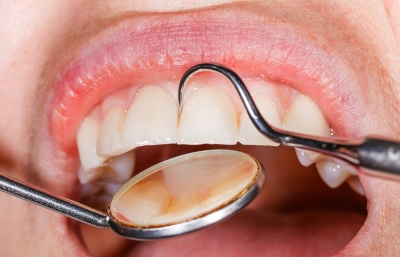SPOTTING THE SIGNS OF GUM DISEASE
You do not have to be a periodontist to see the signs of periodontal disease. Educating yourself about gum disease and its symptoms helps you avoid it and maintain a healthy smile. Use this guide to figure out how to spot periodontal disease early so you can get the treatment you need:
Bleeding, Swollen Gums
In its initial phase, periodontal disease is known as a condition called gingivitis. When plaque and bacteria find their way to the gums, they can cause inflammation and infection. If you have already reached this stage, you might notice that your gums bleed when you brush or floss your teeth. Gingivitis also causes the gums to swell and turn red. Pay attention to your gums when you brush your teeth. If you notice any of these signs, you should schedule an appointment with your Belmont dentist to get the treatment you need. If caught early, you can reverse gingivitis and maintain the health of your gums.
Longer Looking Teeth
As the periodontal disease attacks the gums, it might cause them to recede. Once the periodontal disease destroys the tissue and bones in your jaw, they are gone for good. If you notice that your teeth look longer than they once did, gum recession might be the cause.
Bad Breath
Bacteria and infections in the mouth might negatively affect your breath. Although bad breath could be caused by a variety of other factors, it might also be a sign of gum disease. If you suddenly have halitosis, you might want to schedule an appointment with your dentist to find out if periodontal disease is causing it.
Loose Teeth
As gum disease starts to attack the bone and the surrounding tissue, your gums can no longer support your teeth. People with advanced periodontitis often notice that their teeth start to shift away from their original locations. Once periodontal disease has progressed to this level, teeth might even become loose and could even fall out.

